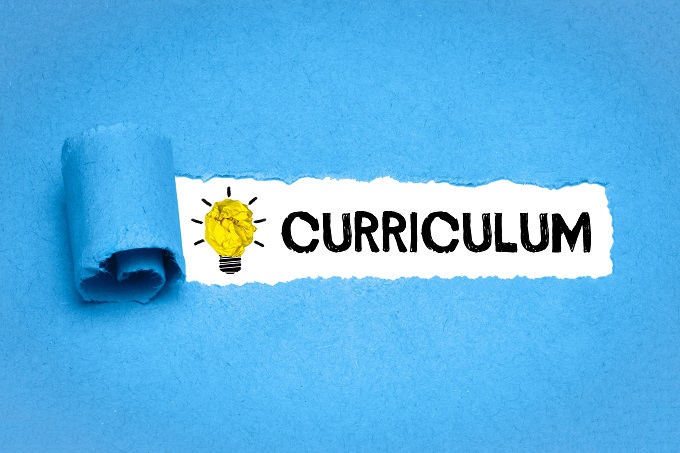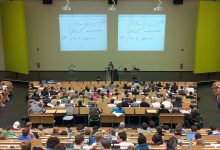
Media Releases
A decluttered Australian Curriculum that sets high expectations and standards for what all students should know and be able to do, and that supports deeper conceptual understanding and improvement in educational performance, has been endorsed by education ministers today.
“The Australian Curriculum ensures the same high standard curriculum content is available to every student, regardless of where they live. It reflects the priorities and expectations we hold for our young people, and this curriculum sets a new high benchmark,” said ACARA CEO, David de Carvalho.
“Importantly, this is a more stripped-back and teachable curriculum that identifies the essential content our children should learn. Together with new resources designed to support our teachers, it is expected the Australian Curriculum will lead to improved student outcomes.
“There is a stronger focus on phonics in English and on mastering essential mathematical facts, concepts, skills and processes. Students will be introduced to concepts and processes at the right time.
“History has been significantly decluttered, allowing more time for in-depth teaching. There is a strengthening of explicit teaching of consent and respectful relationships from F–10 in age-appropriate ways.”
Ministers considered the final draft earlier this year and were supportive of the revisions to 6 of 8 learning areas, as well as the cross-curriculum priorities and the general capabilities. Further revisions were requested in Mathematics and the Humanities and Social Sciences, which have now been approved.
Australian Curriculum – summary of key changes
- the removal and reduction of content so the curriculum can be taught with depth and rigour, including a 21% reduction in the number of content descriptions, which describe what is to be taught and what students are expected to learn
- a stronger focus on phonics in English
- a stronger focus on students mastering the essential mathematical facts, skills, concepts and processes, and being introduced to these at the right time
- making clear what mathematical computations need to be done without a calculator, reinforcing the importance of achieving proficiency in foundational skills
- a revision of the sequencing of content in Mathematics, in particular, telling time, introduction of fractions, recall of multiplication facts and the solution of linear equations
- lifting standards for Mathematics in Year 1 in relation to addition and subtraction, and with additional content setting expectations about recall and proficiency with multiplication facts (“times tables”) beginning in Year 2.
- prioritising Australian history in Year 9 and 10 within a global context
- deepening students’ understanding of First Nations Australian histories and cultures, the impact on First Nations Australians of the arrival of British settlers as well as their contribution to the building of modern Australia
- strengthening and making explicit teaching about the origins and heritage of Australia’s democracy and the diversity of Australian communities
- strengthening the explicit teaching of consent and respectful relationships from F–10 in age-appropriate ways
- addition of privacy and security in the Digital Technologies curriculum
- strengthening the focus on students being physically active and content with a focus on activity in natural and outdoor settings.
- strengthening the Foundation year by identifying the essential content to teach in the first year of school across all 8 learning areas.
ACARA is also undertaking further work in the important area of mental health for young Australians. This will be reflected in later updates to the Health and Physical Education curriculum.
Australian Curriculum – consultation
The review set out to improve the curriculum from Foundation to Year 10 by refining, realigning and decluttering the content. For the first time, proposed revisions to the entire F–10 Australian Curriculum were released for public comment at the same time. During that consultation period, more than 6,000 online surveys and 900 email submissions were received. Eighteen teacher and curriculum reference groups comprising 360 teachers and curriculum specialists from across Australia also supported and provided advice during the review process.
“The Australian Curriculum must represent broad community consensus and be based on well-informed and researched evidence, and the consultation process has helped achieve this outcome,” ACARA’s Curriculum Director, Sharon Foster, said. “The final version has been significantly improved as a result.”
ACARA appreciates the leadership provided by education ministers, and the input, direction and support provided by practising teachers, curriculum specialists, subject matter experts, academics, and peak professional and industrial bodies, as well as the extensive public feedback received during consultation.
“I want to thank everyone who engaged in the consultation for their input, direction and support. It has helped to shape an Australian curriculum that will help our education system to achieve our national goals of excellence and equity,” Ms Foster said.
The existing Australian Curriculum that is currently taught in schools, and all support resources, will continue to be available on the current Australian Curriculum website until all states, territories and schools are implementing the updated curriculum.
Australian Curriculum – new website
The updated curriculum, Version 9.0, will be available on a new website in Term 2, 2022 and will be implemented by schools according to the timelines set by education authorities in states and territories.
To support implementation, ACARA will source and develop resources for teachers, with a focus on new and changed content areas.
Government “will consider continuous updates to the curriculum”
In his statement, Acting Minister for Education and Youth Stuart Robert said the revised Version 9.0 of the Australian Curriculum can be taught in Australian schools from 2023:
The Australian Curriculum now sets a higher standard for educational achievement in Australia going forward. It has been decluttered, allowing teachers to focus on what matters most, and it is evidence-based, with phonics now embedded in the teaching of English, for example.
“Importantly, Ministers also noted that they will consider continuous updates to the curriculum so that more iterative improvements can be made in the future,’ Minister Robert said.
In our February meeting, the Commonwealth and Western Australian Governments requested further revisions to two of the learning areas: Humanities and Social Sciences (HASS) and Mathematics.
“The Commonwealth took a strong view on the improvements needed and is pleased that the ACARA worked with experts to further progress this version.
In the final version agreed today, Australian History content is now compulsory in both Year 9 and 10, where it had previously been optional. This will strengthen how our young people appreciate our prosperous, democratic country.
“Importantly, this means high school students will learn post-settlement history from the period 1750 to the First World War. They will also learn the impact of post-Second World War migration in Australia and the significant contributions migrants have made to Australia’s success.
“Indigenous History remains a prominent part of the curriculum and is embedded across Foundation to Year 10, and for the first-time students will learn Deep Time Indigenous History as a compulsory part of Year 7.
“A clearer Maths curriculum brings the introduction of key concepts into line with our international counterparts and focuses on mastery of the basics in primary years.
“In February, all Ministers agreed to request further revisions the Mental Health content within the Health and Physical Education (HPE) learning area.’
ACARA recommended, and all Ministers supported this further iterative work to the Mental Health content be completed by the end of 2022. This will allow time for ACARA to engage closely with experts.
Strengthening Indigenous languages in Australian classrooms
Local Indigenous languages will be brought into the classroom, with the Federal Government funding the development of up to 60 dual language books over three years.
Community organisations will share in $3 million to partner with schools and Indigenous communities to develop and print books in English and their local language.
Minister for Indigenous Australians, Ken Wyatt said the initiative directly contributes to Target 16 of Closing the Gap – Aboriginal and Torres Strait Islander cultures and languages are strong, supported and flourishing.
“In recent years, there has been considerable growth in interest in Aboriginal and Torres Strait Islander languages across the country, from both Indigenous and non-Indigenous Australians,” Minister Wyatt said.
“This project takes languages out of dictionaries and word lists and puts them into more common use, supporting the uptake of Indigenous languages by young people
“Indigenous students will be able to practice their local languages in a culturally safe way and to share stories of their culture and history with their peers, while boosting literacy levels as students learn to read and speak in a way familiar to them.”
“Dual language books will help all Australian children learn about the world’s oldest living culture and will contribute to our nation’s journey towards reconciliation.”
The dual language books will be accompanied by a digital teaching resource aligned to the Australian curriculum.
“The digital teaching resource will provide guidance on how to deliver culturally safe lessons as classes explore their local languages, cultures and history, both the positive stories and injustices faced by Aboriginal and Torres Strait Islander peoples throughout Australia’s history,” Minister Wyatt said.
“Once the books and lessons are delivered in a local area, these books will be published more widely so that all Australians can explore and learn more about our unique languages as part of our nation’s journey to reconciliation through truth-telling.”







